As the 40th anniversary of the Brixton Uprising approaches, Dave Randall listens to the soundtrack of the struggle
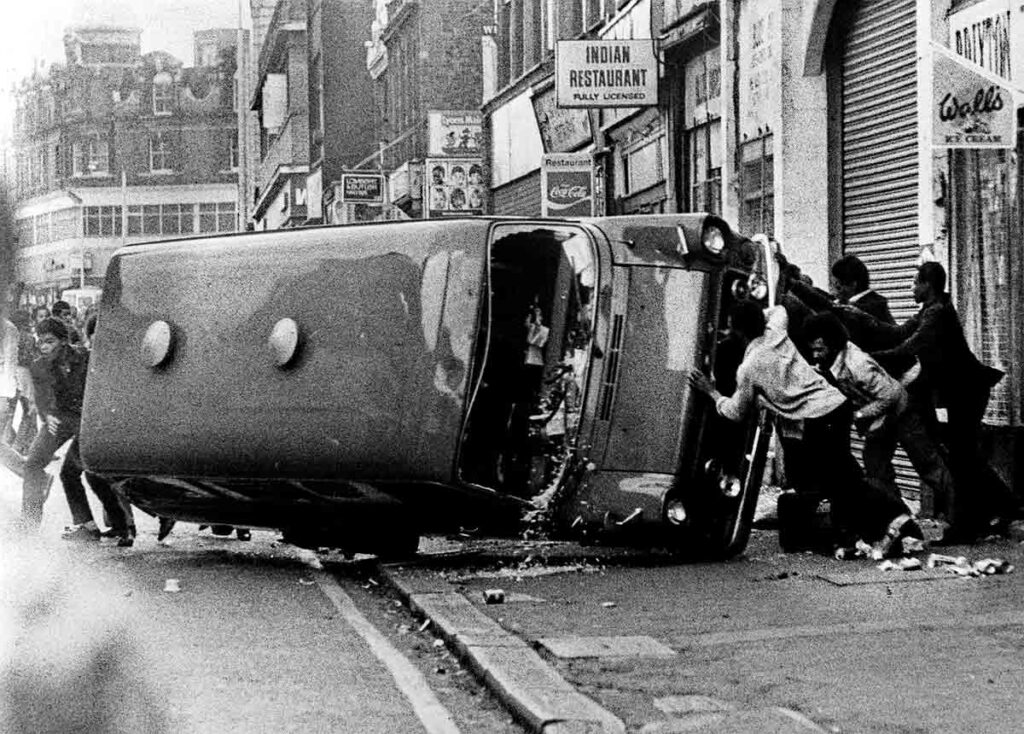
Chaos, violence and destruction are the words we most readily associate with riots. Certainly eyewitnesses have described the Brixton Uprising of April 1981 as “all out war”. But it was also a profoundly political act destined to become a defining moment in the story of a polarised nation.
Many musicians felt moved to document the events, and in so doing created a new soundtrack for the struggle.
Punk had already prophesied unrest with The Ruts’ Babylon Is Burning and the Clash’s Guns of Brixton.
The latter, penned by bassist Paul Simonon, who grew up in Brixton, is often mistakenly thought to be inspired by the riots, but was actually written a few years before.
In the wake of the uprising local dub-poet legend Linton Kwesi Johnson recorded Di Great Insohreckshan declaring: “When we mash up the Swamp 81, fi what? Fi make deh ruler dem understand, that we nah tek no more of dem oppression”. (Swamp 81 – a reference to the police operation that sparked the uprising, when 10 police squads swooped on central Brixton in early April and, operating under the hated “sus” law, stopped and searched almost 1,000 people in six days – most of them young Black men.)
Probably the most famous topical tune of the times was The Specials’ Ghost Town, written with an eye on the riots in that took place in St Pauls, Bristol in the previous year, and recorded the same week Brixton erupted.
The song’s lyrics captured the scenes of desolation witnessed in inner-cities across the country: “Government leaving the youth on the shelf, no job to be found in this country, can’t go on no more, the people getting angry”.
Released in the summer as rioting spread to other cities, it spent three weeks at number one in the UK chart.
With 2-Tone testifying on Top Of The Pops, roots reggae provided reportage from the streets. Raymond Naptali and Roy Rankin’s Brixton Incident described rising unemployment, Black pride and defence of the “Frontline” (as Railton Road and surrounding streets were known at the time) by youth “fling(ing) stone and battle pon di wicked tabernacle”.
Appropriately enough, the tune was released as B-side to an equally poignant track New Cross Fire.
A host of other reggae testimonies included Chrismic Youth’s Brixton Riot, Abacush’s Suffera Style (Brixton Riot 1981), Lorna Gee’s Brixton Rock, Angelic Upstarts’ Flames of Brixton and Sugar Minott’s Riot inna Brixton.
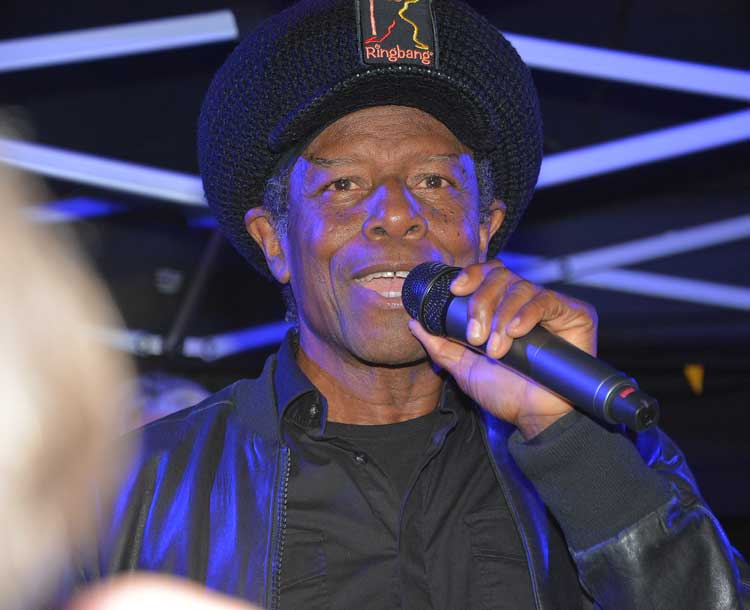
Then, in 1982, came Eddy Grant’s huge hit Electric Avenue, named after the iconic market street which curves through the heart of Brixton.
Perhaps it’s the upbeat, poppy feel of the song that led some (including the decorative panels in the stairway of Morleys department store) to interpret the lyrics as simply a “celebration of the vibe of the area”.
Close listening suggests something rather more specific: “Now in the streets there is violence, and lots of work to be done … working so hard like a soldier, can’t afford a thing on TV, deep in my heart I abhor ya, can’t get food for the kids, we’re gonna rock down to Electric Avenue, and then we’ll take it higher.”
It would be easy to find irony in the fact that such violent scenes inspired a dance-floor favourite, liable to pop up on wedding disco playlists to this day.
But when the events of April 1981 are seen as a moment when a community under attack fought back, the celebratory tone of the song seems less incongruous.
The riots forced policymakers to acknowledge the impact of racism, economic deprivation and a lack of opportunities, and led to some much needed investment in the area.
That was four decades ago and, as the Black Lives Matter movement reminds us, there remains “lots of work to be done” – to steal the phrase from Eddy Grant’s song.
We still face serious challenges, but they may well have been even greater were it not for the Brixton Uprising of 1981.
Dave Randall is a musician and author of Sound System: The Political Power of Music



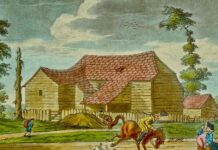

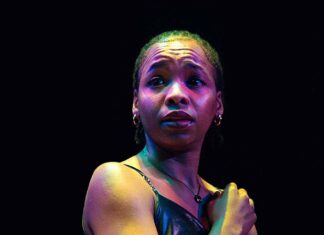




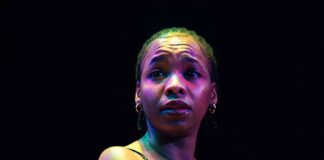






are you serious about ‘ghost town’? it was written about coventry. it had nothing to do with any riots that might have happened in other parts of the country. the industry (coventry’s main source of employment back then) was in decline and factories were shutting their doors for the last time. were once coventry was the city to live in, now people were moving out, looking elsewhere for work. coventry’s people abandoned their home, the city most were born into. it became a violent city, the clubs (once the place to be seen) were shutting [their] doors because drink and anger should never be allowed to mix! coventry became, as the song title suggests, a ghost town! young people were afraid to go out at night for fear of being assaulted as they walked from pub to club or club to their home! ‘electric avenue’ is still there in brixton, the start place of the riot and a song you mention above. bit no, the specials ‘ghost town’ was about coventry and its decline in the early 80’s